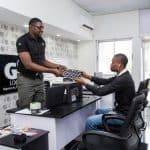A bank statement is one of the most important documents required for visa application at the embassy or high commission. A bank statement is used to prove that you have the necessary financial flow to meet your financial obligations in the cause of your trip, so you don’t become a liability. It is also used as one of the supporting documents proving your authenticity.
Despite the above, it is essential to note that a bank statement with a fat account balance might not necessarily be a good bank statement to present for your visa application. In this article, we shall explore the ideal contents of a bank statement, how to get a bank statement for visa application and some tips of a good bank statement that will be accepted in your next visa application process.

Related: Fidelity Bank Salary Structure; How Much Do Fidelity Bank Staff Earn?
Contents
A formal bank statement for visa application is expected to cover the following:
- Deposit and Withdrawal: a bank statement must contain details of all money that entered into the account, which is the deposit and the payment that left the account, which is referred to as withdrawals through offline and online banking channels during the period the bank statement covers. The duration of the transactions cover should be within three to six months, depending on the category of visa applied.
- Date: the specific time of all transactions from the bank must be accurately stated to prove that there is no unnecessary bulk transaction that does not tally with the account flow.
- Account Name: the name and some details of the account holder including account number must also be well stated totally with the applicant’s name except in situations where the account is that of a sponsor who is different from the visa applicant, or a company account is being used. Other supporting documents linking the account details to the visa applicant should be provided to the embassy.
Getting the Bank Statement
There are two primary ways one can get a bank statement for visa application:
- Online: with the advent of technology, customers can now perform almost all kinds of banking services from the comfort of their rooms after paying the necessary transaction fees. Getting a bank statement from any Nigerian bank through this route can be done by using the official bank app to request it. After going through the process on the app, a PDF copy will be automatically downloaded on the phone.
Other channels that can be used are the bank’s unique USSD code or by email, and the bank statement will be sent via mail to you for subsequent download and submission.
2. Offline: the old suitable method of visiting a physical bank branch is still preferred by most Nigerians, especially older Nigerians who need human interactions in a banking hall and are sometimes not comfortable using technology for financial transactions.
All you have to do is work into any of your Nigerian bank branches and request a bank statement; you will most likely be given an application form – fill it appropriately and pay the necessary fees. Your bank statement will be issued to you afterward.
On a side note, getting your bank statement offline might be your best bet, especially for a first time international traveler. If you collect the report physically, it will likely be stamped with the bank’s official stamp or seal. This might make your document more believable if the embassy wants to go ahead and verify its originality.
Useful Tips
:strip_icc()/what-is-a-bank-statement-5092371_color3-66c2e1e68b06495088d0e57361eda970.png)
The following tips are provided as a bonus to guide you while getting your bank statement for visa application –
- Ensure that the account to be used has a steady flow of income. A salary or company account might better be suited for this purpose. While an account with a considerable balance will be desirable, it is not the ultimate in approving your visa application.
The withdrawals and deposits should be stable and must match your stated source of income. It is best to avoid unusual, unexplained large transactions towards your application, as this may be termed suspicious.
- If you are using a sponsor’s account, you are expected to be related to your sponsor by family ties or profession. The relationship proof should be attached to your application either in the form of a marriage certificate, birth certificate, or evidence that you work for the sponsor. You will also be expected to state what the sponsor does for a living and provide his contact details.
- Do not present a forged bank statement as most embassies will most likely contact the bank to confirm what you submitted. If your bank statement is flagged as fake, you will be banned from entering the country for a very long time or getting arrested.
While due to the fiduciary trust relationship that exists between you and the bank will not permit the bank to disclose your account balance with the embassy. All the embassy needs from the bank are for them to authenticate that the bank statement you submitted to them originated from the bank.
- There is no right account balance that fits all models of visa application; it depends on what you are traveling for. An applicant for a study visa is typically expected to provide proof of more funds than a person applying for a tourist visa with two weeks of validity.
It is best to have at least double of your intended expenses as your account balance. Let us assume you are applying for a tourist visa with an intended expense estimate of a million naira. It is advisable to have up to two million naira in your account to prove that you can take care of any unforeseen expense and have some balance to cushion the impact of your trip afterward.












